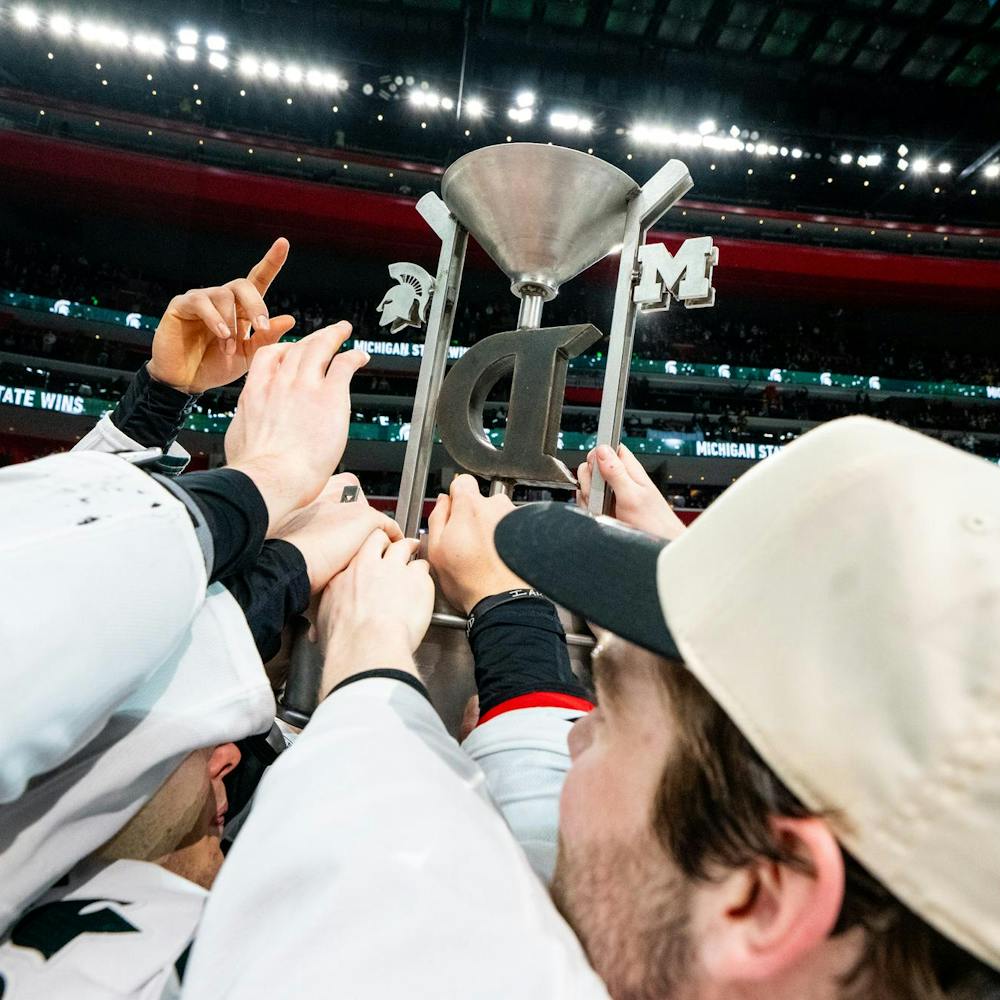Before arriving at Michigan State University, President Kevin Guskiewicz had already built a reputation that extended beyond academia — shaped by groundbreaking concussion research that influenced both the NFL and NCAA.
However, that same body of work would later draw scrutiny from critics as he rose through leadership roles at the University of North Carolina at Chapel Hill.
A Pittsburgh native, Guskiewicz once dreamed of working for the Steelers — an opportunity he realized during his master’s program at the University of Pittsburgh.
"It was during that time, working the sidelines of a professional football game back in the late '80s, early '90s, I said, 'Why are we sending players back into the game with a suspected concussion, but holding someone out for two weeks with a knee injury?' " Guskiewicz said. "It didn’t make any sense. But we didn’t have enough information — we didn’t have very good tools in the toolbox for evaluating a concussion."
That experience propelled him to pursue a doctorate in sports medicine at the University of Virginia, one of the few institutions offering such a program at the time. There, he studied under Dr. Jeffrey Barth — a trailblazer in mild traumatic brain injury research who passed away in March 2024 — and collaborated with David Perrin, a leading athletic training researcher.
While at Virginia, Guskiewicz developed the Balance Error Scoring System (BESS), a test now used by the NFL and NCAA to evaluate balance following head injuries.
In 1995, he joined UNC-Chapel Hill as an assistant professor and continued his research into football-related brain injuries. In 2010, he founded the Matthew Gfeller Sport-Related Traumatic Brain Injury Research Center, further expanding his impact.
A year later, Guskiewicz brought concussion data to the NFL Combine, urging league officials to change the kickoff rule based on research showing the play led to a disproportionate number of head injuries.
He said he presented nearly 400,000 data points to support the change. Within three years of the rule revision, concussions on kickoffs dropped by 50%.
"I’m data-driven," he said. "When I convinced the NFL to change the rule, I took data with me."
Guskiewicz carried that same data-first mindset into UNC-Chapel Hill through various leadership roles, including as dean of the College of Arts and Sciences and, later, as chancellor from December 2019 to January 2024.
But just before his deanship, Guskiewicz’s research legacy came under scrutiny.
A paper published in the Journal of Scientific Practice and Integrity questioned a series of UNC studies — 10 of which list Guskiewicz as a co-author — for not disclosing high rates of ADHD and learning disabilities among football players. Critics argued those factors may have influenced cognitive data used in research cited by the NFL, NCAA and Department of Defense.
The article’s authors — University of Utah adjunct professor Ted Tatos and NeuroLabs CEO Donald Comrie — called for greater scrutiny of the findings.
Guskiewicz has publicly addressed the criticism, describing the claims as baseless.
"We knew from the minute that ridiculous claim came out, that it was a false claim," he said.
The neuroscience community rallied behind him, issuing a letter signed by 125 researchers in support of his work. Guskiewicz also requested both internal and independent investigations into the studies to verify their integrity.
He said the controversy was difficult not only for him, but also for the 12 to 15 researchers on his team at the time.
"As a leader, you’re tested at times," he said. "How you respond to a situation like that — I learned a lot through it, and I’m really proud of the way we defended that important work."
Despite the pressure, he said the team remained focused and committed. He now shares that experience with mentees, reminding them that not every critic comes in good faith.
Support student media!
Please consider donating to The State News and help fund the future of journalism.
The publication behind the original article folded after just four months. Guskiewicz also pointed to journalist Armen Keteyian’s brief tenure at The Athletic, suggesting the claims lacked credibility.
"I was really proud of the way we defended that important work," he repeated.
Now at MSU, Guskiewicz brings those lessons into his presidency — data-driven, battle-tested and student-focused.
Discussion
Share and discuss “From NFL sidelines to MSU presidency: Kevin Guskiewicz’s unlikely path” on social media.







